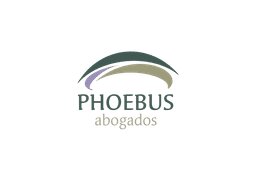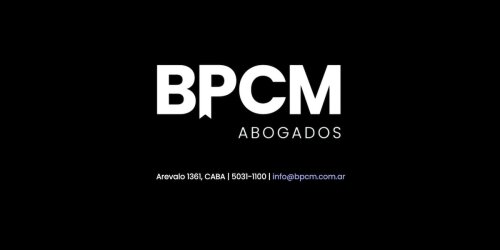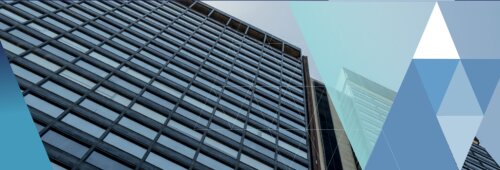Best Media, Technology and Telecoms Lawyers in Argentina
Share your needs with us, get contacted by law firms.
Free. Takes 2 min.
Or refine your search by selecting a city:
List of the best lawyers in Argentina
About Media, Technology and Telecoms Law in Argentina:
Media, Technology, and Telecoms Law in Argentina encompasses regulations and laws that govern the use of media, technology, and telecommunications in the country. This area of law covers a wide range of issues such as intellectual property rights, data protection, privacy, media content regulation, telecommunications services, and competition laws.
Why You May Need a Lawyer:
There are several situations where you may need a lawyer specializing in Media, Technology, and Telecoms Law in Argentina. Some common scenarios include drafting or reviewing contracts for media, technology, or telecommunications services, handling intellectual property disputes, navigating data protection regulations, dealing with regulatory compliance issues, and representing you in negotiations with other parties.
Local Laws Overview:
In Argentina, Media, Technology, and Telecoms Law is governed by various laws and regulations. Some key aspects include the Argentine Audiovisual Communication Services Law, which regulates the audiovisual media in the country, the Personal Data Protection Law, which aims to protect personal data and privacy, and the Telecommunications Law, which regulates the provision of telecommunications services. It is important to be aware of these laws and how they may impact your activities in the media, technology, and telecommunications sectors.
Frequently Asked Questions:
1. What are the main regulatory bodies overseeing Media, Technology, and Telecoms in Argentina?
In Argentina, the main regulatory bodies overseeing Media, Technology, and Telecoms are the National Communications Entity (ENACOM) for telecommunications, the National Institute of Cinema and Audiovisual Arts (INCAA) for audiovisual media, and the National Directorate of Personal Data Protection (DNPDP) for data protection.
2. What are the key requirements for data protection compliance in Argentina?
Data protection compliance in Argentina requires companies to obtain consent for data processing, implement security measures to protect personal data, and comply with data transfer restrictions. Companies must also appoint a data protection officer and register their databases with the DNPDP.
3. How are intellectual property rights protected in Argentina?
Intellectual property rights in Argentina are protected through various laws including copyright law, trademark law, and patent law. It is important to register your intellectual property to enforce your rights and prevent others from using your creations without permission.
4. What are the main restrictions on media content in Argentina?
Media content in Argentina is subject to restrictions such as those related to hate speech, violence, and discrimination. Certain content may require approval from regulatory bodies like the INCAA before being broadcasted or published.
5. How can a lawyer help with negotiating contracts in the media, technology, and telecoms sectors?
A lawyer specializing in Media, Technology, and Telecoms Law can help negotiate contracts by ensuring that your interests are protected, reviewing the terms and conditions to avoid any pitfalls, and providing legal advice on complex clauses or legal implications.
6. What are the main challenges in complying with telecommunications regulations in Argentina?
Complying with telecommunications regulations in Argentina can be challenging due to the rapidly changing nature of technology, the need to adapt to new regulations, and the competition in the sector. A lawyer can help you navigate these challenges and ensure compliance with the relevant laws.
7. Can companies be held liable for data breaches in Argentina?
Yes, companies can be held liable for data breaches in Argentina under the Personal Data Protection Law. Companies must implement security measures to prevent data breaches and must notify the DNPDP and affected individuals in case of a breach.
8. What are the requirements for obtaining a telecommunications license in Argentina?
To obtain a telecommunications license in Argentina, companies must meet certain requirements such as demonstrating technical and financial capabilities, complying with service quality standards, and obtaining approval from ENACOM.
9. How can a lawyer help with intellectual property disputes in Argentina?
A lawyer specializing in intellectual property law can help with intellectual property disputes by representing you in court, conducting legal research, drafting legal documents, negotiating settlements, and enforcing your rights as an intellectual property owner.
10. What are the main legal considerations for companies operating in the technology sector in Argentina?
Companies operating in the technology sector in Argentina must consider legal issues related to intellectual property, data protection, e-commerce regulations, and competition laws. It is important to seek legal advice to ensure compliance with the relevant laws and regulations.
Additional Resources:
For more information on Media, Technology, and Telecoms Law in Argentina, you can visit the websites of ENACOM, INCAA, and DNPDP for regulatory updates and guidelines. You may also consider consulting with legal professionals specializing in this field for tailored advice and assistance.
Next Steps:
If you require legal assistance in Media, Technology, and Telecoms Law in Argentina, it is recommended to contact a lawyer with expertise in this area. They can help assess your specific situation, provide legal advice, and assist you in navigating the complex legal landscape to achieve your objectives.
Lawzana helps you find the best lawyers and law firms in Argentina through a curated and pre-screened list of qualified legal professionals. Our platform offers rankings and detailed profiles of attorneys and law firms, allowing you to compare based on practice areas, including Media, Technology and Telecoms, experience, and client feedback.
Each profile includes a description of the firm's areas of practice, client reviews, team members and partners, year of establishment, spoken languages, office locations, contact information, social media presence, and any published articles or resources. Most firms on our platform speak English and are experienced in both local and international legal matters.
Get a quote from top-rated law firms in Argentina — quickly, securely, and without unnecessary hassle.
Disclaimer:
The information provided on this page is for general informational purposes only and does not constitute legal advice. While we strive to ensure the accuracy and relevance of the content, legal information may change over time, and interpretations of the law can vary. You should always consult with a qualified legal professional for advice specific to your situation.
We disclaim all liability for actions taken or not taken based on the content of this page. If you believe any information is incorrect or outdated, please contact us, and we will review and update it where appropriate.
Browse media, technology and telecoms law firms by service in Argentina
Argentina Attorneys in related practice areas.
Browse media, technology and telecoms law firms by city in Argentina
Refine your search by selecting a city.












